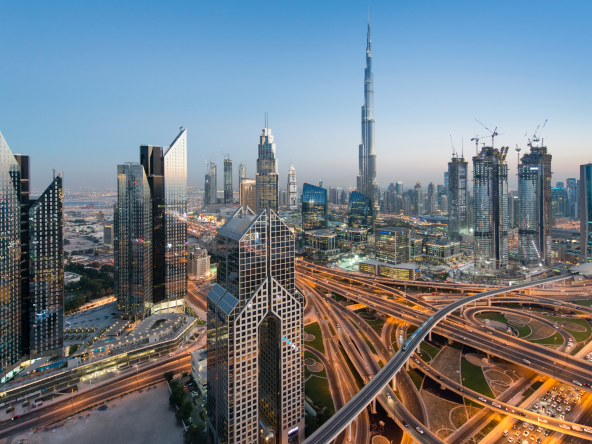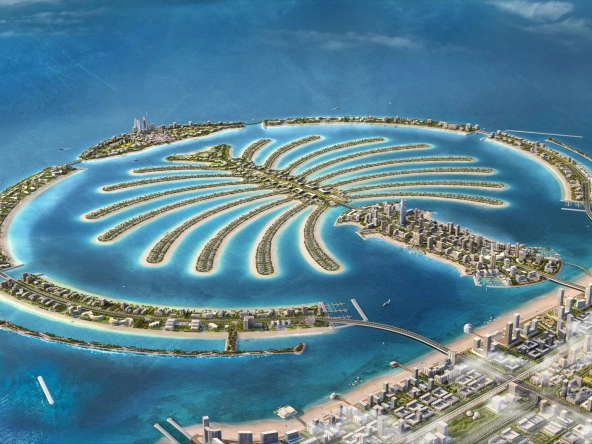Dubai, known for its breathtaking skyscrapers, luxurious lifestyle, and thriving economy, has witnessed an unprecedented surge in its population in recent years. The city’s total population has surpassed 3.6 million, marking a significant milestone in its history. This remarkable growth can be attributed to various factors, including the city’s emergence as one of the top destinations to live and work post-pandemic, as well as the government’s ambitious vision to transform Dubai into the world’s best place to reside.
A Rapid Increase in Population
At the end of 2022, Dubai was home to 3.55 million people, according to the Dubai Statistics Centre. Within just six months, the population grew by an impressive 50,000, representing a growth rate of approximately 1.5%. The first quarter of 2023 witnessed a 1% increase, with the population reaching 3.567 million people. This upward trend is expected to continue, with Dubai’s population projected to rise exponentially in the coming years.
Dubai’s Urban Plan 2040: A Vision for the Future
To accommodate the growing population and ensure a comfortable and sustainable lifestyle for its residents, the Dubai Government has formulated the Dubai Urban Plan 2040. This comprehensive plan aims to address the city’s infrastructure needs and boost its overall development. The key outcomes of the Dubai Urban Plan 2040 envision a staggering 5.8 million increase in the population, reaching a total of 7.8 million by 2040.

As the population grows, so will the need for enhanced facilities and amenities. The Urban Plan 2040 focuses on expanding crucial areas such as green and recreational spaces, educational and healthcare facilities, industrial and economic zones, as well as hospitality and tourism activities. The plan aims to increase green and recreational areas by 105%, provide 25% more space for educational and health facilities, add 1.7 billion square feet of land for industrial and economic activities, and project a 134% growth in the space dedicated to hospitality and tourism.
Affordable Housing Challenges Amidst Soaring Demand
While Dubai’s population continues to soar, the residential property market is facing challenges in keeping up with the increasing demand, particularly in the affordable housing segment. The shortage of affordable housing has become a pressing issue, exacerbating the housing crisis in certain areas of the emirate. Industry experts predict that even in 2024, the supply of residential properties will not be able to match the demand due to the high influx of foreigners and residents turning towards homeownership amidst rising rentals.
In 2023, approximately 50,000 new residential units were handed over in Dubai, accounting for nearly half of the population increase. However, this still falls short of meeting the soaring demand for housing. The Dubai Statistics Center data reveals that the emirate’s population grew by over 100,000 in 2023, surpassing 3.65 million by mid-December. The high demand for residential properties can be attributed to the influx of foreign workers, professionals, and investors who were attracted to Dubai’s higher returns on investments and the availability of various residency permits.
The Shift towards Affordable Areas
As the demand for affordable housing intensifies, the real estate market in Dubai is witnessing a shift in demand from prime locations to more affordable areas. Buyers are increasingly seeking lower prices and opportunities for future investment appreciation. Areas such as Discovery Gardens, Dubai Silicon Oasis, Jumeirah Village, Business Bay, The Greens, and Dubai Production City have become popular choices for individuals looking for affordable housing options.
The shortage of available land in central, prime, and established residential communities has limited the construction of new residential properties in these areas. As a result, new residential projects and units are being developed in up-and-coming suburbs such as Dubai South, Jumeirah Village Circle (JVC), Arjan, and Townsquare. However, these new developments are not expected to be handed over to end-users until 2025-2027, exacerbating the undersupply of residential properties in Dubai for the next 24-36 months.
The Outlook for Dubai’s Real Estate Market
Looking ahead, the supply of new residential properties in Dubai is expected to face challenges due to the time-consuming process involved in planning, financing, and constructing new developments. Post-Covid-19, developers have also grappled with supply chain disruptions and rising construction costs, leading to delays in the handover of new homes. While developers have responded to the current undersupply by releasing 100,000 new off-plan units for sale in 2023, these units will not be available for occupation until 2025-2027, prolonging the shortage of residential properties in Dubai.

Luxury properties, which have witnessed higher demand compared to the affordable and middle segments, will continue to face the largest shortage of new residential units entering the market. The scarcity of available land in prime locations has hindered the development of new residential projects, further impacting established premium residential communities such as Jumeirah Golf Estates and Arabian Ranches.
However, Dubai’s 2040 master plan serves as a driving force for both supply and demand in the real estate market. With the government’s commitment to increasing the current population of 3.6 million to 7.8 million residents by 2040, there is a clear need for large-scale commercial and residential developments to meet the demands of the growing population.
In conclusion, Dubai’s population has experienced an extraordinary rise, surpassing 3.6 million for the first time in history. The city’s vibrant economy, attractive lifestyle, and ambitious urban development plans have attracted a considerable influx of residents and investors. However, the surge in population has also presented challenges, particularly in the affordable housing segment. While efforts are being made to address the shortage, the undersupply of residential properties is expected to persist in the coming years. Dubai’s real estate market must find innovative solutions to ensure housing availability and affordability for its growing population.


